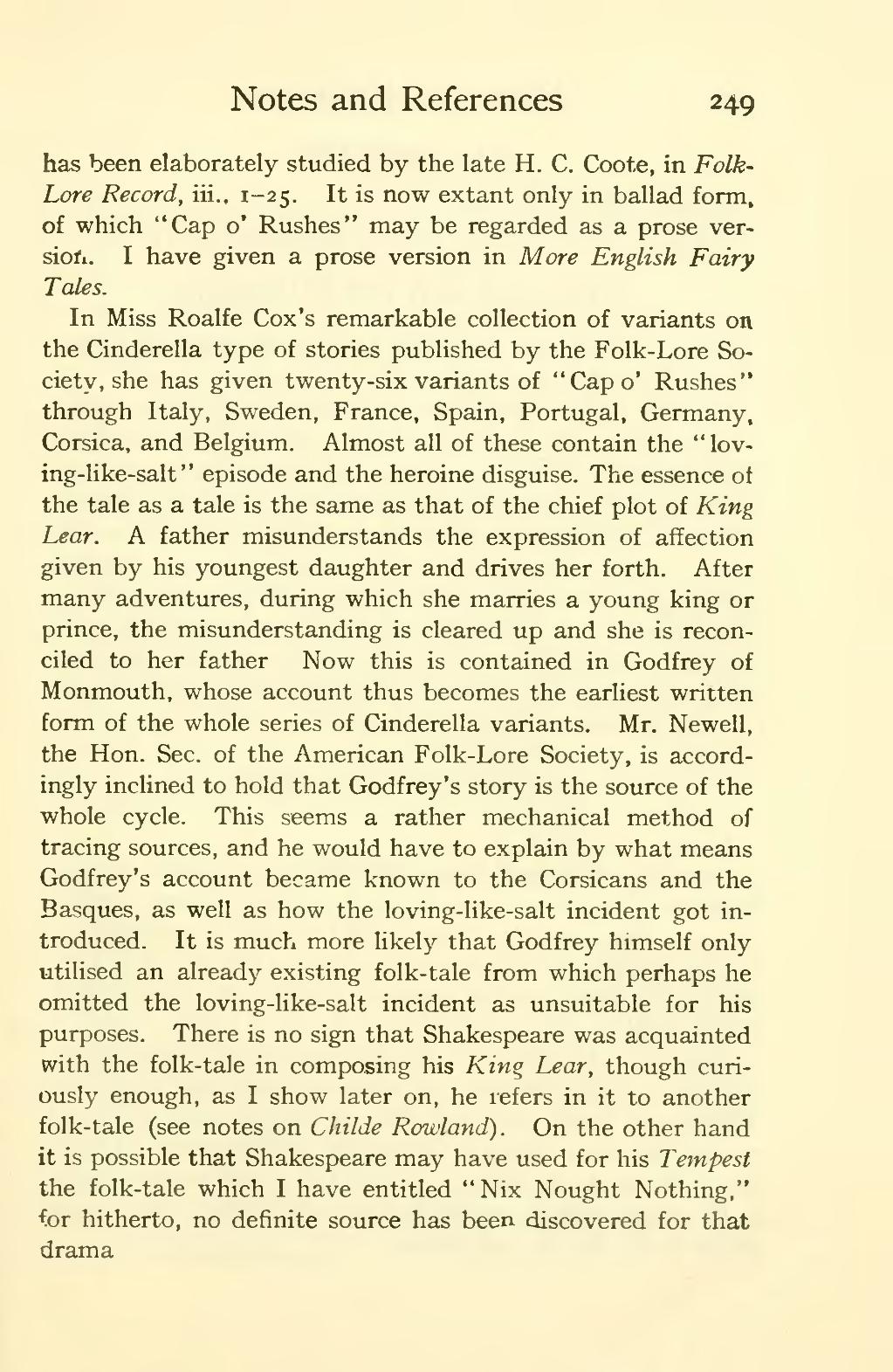has been elaborately studied by the late H. C. Coote, in Folk-Lore Record, iii., 1-25. It is now extant only in ballad form, of which "Cap o' Rushes" may be regarded as a prose version. I have given a prose version in More English Fairy Tales.
In Miss Roalfe Cox's remarkable collection of variants on the Cinderella type of stories published by the Folk-Lore Society, she has given twenty-six variants of "Cap o' Rushes" through Italy, Sweden, France, Spain, Portugal, Germany, Corsica, and Belgium. Almost all of these contain the "loving-like-salt" episode and the heroine disguise. The essence of the tale as a tale is the same as that of the chief plot of King Lear. A father misunderstands the expression of affection given by his youngest daughter and drives her forth. After many adventures, during which she marries a young king or prince, the misunderstanding is cleared up and she is reconciled to her father Now this is contained in Godfrey of Monmouth, whose account thus becomes the earliest written form of the whole series of Cinderella variants. Mr. Newell, the Hon. Sec. of the American Folk-Lore Society, is accordingly inclined to hold that Godfrey's story is the source of the whole cycle. This seems a rather mechanical method of tracing sources, and he would have to explain by what means Godfrey's account became known to the Corsicans and the Basques, as well as how the loving-like-salt incident got introduced. It is much more likely that Godfrey himself only utilised an already existing folk-tale from which perhaps he omitted the loving-like-salt incident as unsuitable for his purposes. There is no sign that Shakespeare was acquainted with the folk-tale in composing his King Lear, though curiously enough, as I show later on, he refers in it to another folk-tale (see notes on Childe Rowland). On the other hand it is possible that Shakespeare may have used for his Tempest the folk-tale which I have entitled "Nix Nought Nothing," for hitherto, no definite source has been discovered for that drama.

